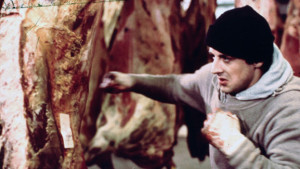Sam Wood of Philly.com writes that for years, whenever the Philadelphia health department discovered a restaurant with hygiene problems that posed a public threat, it has ordered the business to shut down and clean up.
 And for years, restaurants have been able to ignore those cease-and-desist orders.
And for years, restaurants have been able to ignore those cease-and-desist orders.
That’s set to change in March.
An agreement signed by the health agency and the Department of Licenses & Inspections will give health inspectors the power to shut down problem eateries, said Palak Raval-Nelson, director of Environmental Health Services.
“For so long, we’ve only had a water gun to squirt, and now we’re getting an Uzi,” said Raval-Nelson.
As the policy stands now, if inspectors find inadequate refrigeration, an infestation of mice, or spilled sewage, they can do little more than ask L&I to step in.
“Our authority has been limited to asking for a voluntary closure,” Raval-Nelson said.
Nine times out of 10, proprietors agreed to close, she said. Those who didn’t were referred to L&I.
Under the new agreement, in the works since July 2015, health officials can act on their own, said Chief Deputy City Solicitor Andrew Ross.
“It makes the process more efficient,” Ross said. “We’re not growing any new teeth, we’re just moving them from one mouth to the other.”
The discovery of vermin will trigger an automatic 48-hour closure, Raval-Nelson said.
“It’s very difficult to get rid of vermin in less time,” she said. “You can’t go running around stomping on the mice and roaches.”
Though Philadelphia has resisted issuing letter grades for restaurant sanitation, it has made health reports public through the city’s website. (They are compiled at philly.com/cleanplates.) Public attention to the issue was heightened early last year when about 100 lawyers and students were sickened after eating at Joy Tsin Lau, a frequently cited restaurant in Chinatown.
